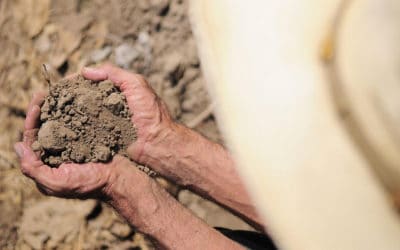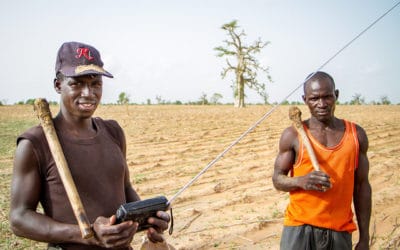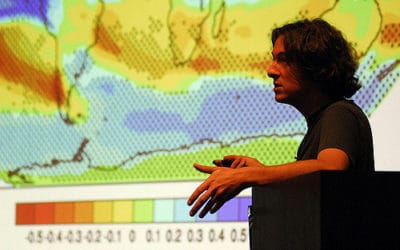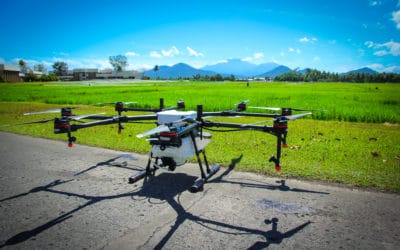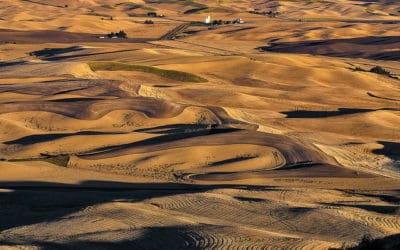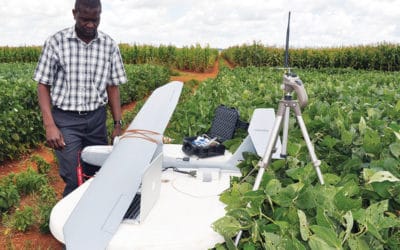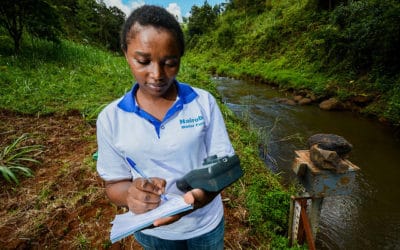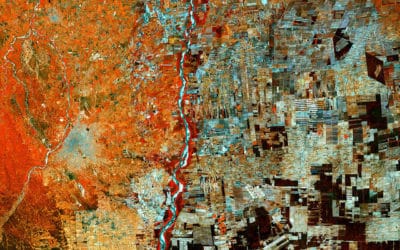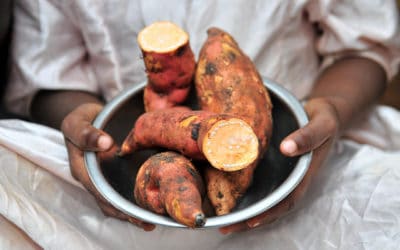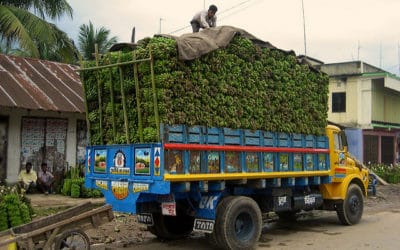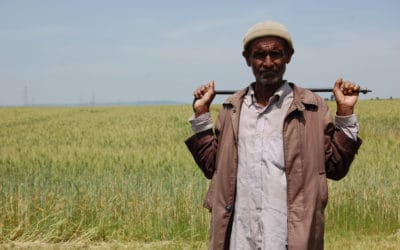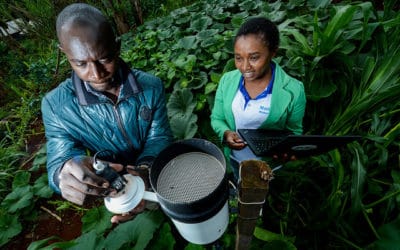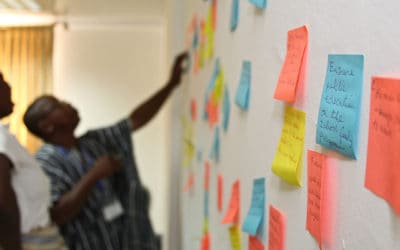Blog Competition Entries
During our inaugural annual convention in September 2017, there were a few main topics highlighted regarding how to harness the potential of big data in the most effective way – Access & Discoverability, Application & Use, and the Ethics of Open Data. We opened up the forum to the community by inviting discussion through a blog competition. You can read the entries here.
Grow more food and mitigate climate change? Agricultural soil data could help
A more comprehensive understanding of agricultural soils is needed to support sustainable development decision making – but collecting the necessary data is challenging.
Consuming information: Agriculture at the crossroads of sustainability
Extension officers, radio, and mobile phones remain crucial for the farmers to access and discover agricultural information.
Transdisciplinary thinking essential to enable sustainable data-intensive agroecosystems
Transdisciplinary thinking is a fundamental requirement if we are to take meaningful steps towards using big data to solve complex socio-environmental problems.
Meet Bob. The farmer needing your help to revolutionize agriculture
Farmers are contributing to the huge amounts of information that can be harnessed for global food security solutions. But they need good allies to ensure its full, and ethical, potential is reached.
For the rural farmer, does big data raise more questions than answers?
Does big data raise more questions than answers?
Big data needed for an agricultural boom
Big data in agriculture is instrumental not just for farmers who produce our food but for various stakeholders and along the agriculture value chain.
Smallholder. Big data
Big data can help smallholders can become agriculture’s big players.
Can big data increase food production?
As a young data scientist I strongly believe that if we can share the data we hold in our laptops, and take advantage of the daily generated data, we can have more nutritious food in our plates.
Big Data to the rescue for cassava disease monitoring in Uganda
Quick disease monitoring and diagnosis of tubers, due to the limited number of experts and resources to cover the entire country, has been a problem for Uganda. How can big data solve this?
Big data poised to transform the global food chain
To achieve food and nutritional security, for present and future generations, an agricultural transformation is not only required. It is vital.
Big Data is the future. But where are the farmers?
Although data is important for all players in the value chain, the primary end-users are the farmers and they are the most novice players in the big data approach, particularly those in developing countries.
Data democracy: Data from the people, by the people, for the people
If the farmer has right to consume, sell, or share their crop, then what about the data generated by the farm? For real digital empowerment there must also be data empowerment.
Getting Open Data out of the cloud and back on the ground to create real impact
In order to transform our food systems and make the way we grow, sell and consume food more sustainable we need data. We need data that is open and online.
For open data to be more effective, local workshops and ICT capacity building initiatives are needed
As the supply of open data is increasing, it is equally important to consider the demand and usage of these data by the group targeted to benefit.

